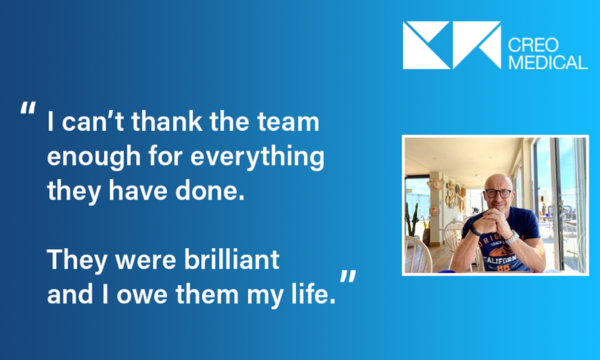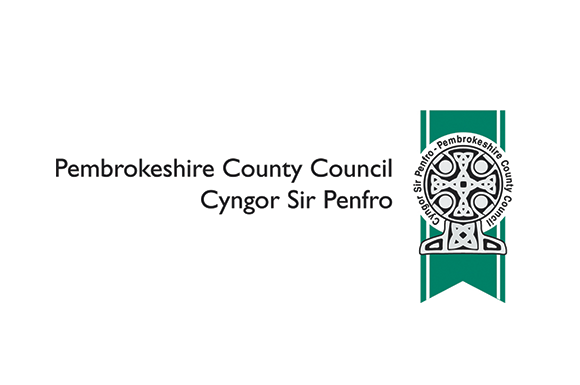A grandfather credits his wife and hospital teams for saving his life after a pre-cancerous growth was detected in his bowel.
Retired maths teacher Chris Grayling, 67, from Hamstreet near Ashford, only visited his GP at his wife’s insistence – and tests revealed the 11cm growth.
Initially, medics planned a major operation that would have left him with a colostomy bag for several months and taken weeks to recover from.
But instead they decided on an innovative approach developed by Creo Medical and gastroenterologists and surgeons at the Queen Elizabeth The Queen Mother Hospital in Margate. The team used a minimally invasive technique (Speedboat Submucosal Dissection or SSD) to remove the large bowel lesion, and he was able to go home within 18 hours.

Chris, who is also an author, said:
“If I was single I probably would have ignored it. I didn’t have any major symptoms or anything that was really causing me concern.
“There was a lot of gas when I went to the toilet and I put it down to taking protein drinks but my wife made me go to the doctor.
“After they tested my stool for blood and that was positive I had a colonoscopy (a procedure where a camera is used to examine the inside of the bowels) and that’s when I knew I was in trouble.
“It looked like cancer and we were devastated. I thought I was going to die. But two weeks later we got the results that it was a pre-cancerous growth.”
“The endoscopic surgery procedure to remove the polyp took place on March 30 and lasted two and a half hours. Specialists advised Chris to take things easy for a few weeks, but he was able to be back in the gym just three weeks later.
He said:
“They said a few years ago I would have ended up with a colostomy bag for six months to a year.
“If that was the option to keep me alive I would have taken it, but now I feel like I’ve got off virtually scot-free.
“The whole thing was easier than my hip replacement operation but it saved my life.
“One of my closest friends died of bowel cancer and that made me so frightened. I can’t thank the team enough for everything they have done. They were brilliant and I owe them my life.
The complex polyp service is a unique collaboration between surgeons and endoscopists at the QEQM and allows patients to avoid major surgery, instead having a minimally invasive procedure with a much quicker recovery time, by using Creo’s Speedboat Inject device.
Since the service was launched 18 months ago, more than 100 patients have been successfully treated, removing often complex pre-cancerous and superficial cancerous growths to prevent cancer from developing or spreading. The multi-disciplinary team includes surgeons, gastroenterologists, nurses and support staff and is led by Dr Zach Tsiamoulos, consultant gastroenterologist, who also leads Creo ‘Pioneer‘ courses training fellow clinicians worldwide in the advanced techniques needed for the procedures.
Dr Tsiamoulos said:
“Mr Grayling’s polyp was a daunting lesion in the large bowel and historically he would have been subject to a major surgical procedure to remove it.
“But we were able to remove it using innovative endo-surgical and advanced energy platforms which had a much better outcome for him and I am delighted he had a quick and uneventful recovery.”
“Our service is unheard of in district general hospitals and I am proud of the whole team involved in delivering it.
This article first appaeared on East Kent University Hospitals website here and was accompanied by a local BBC media item highlighting the brilliant service there.







